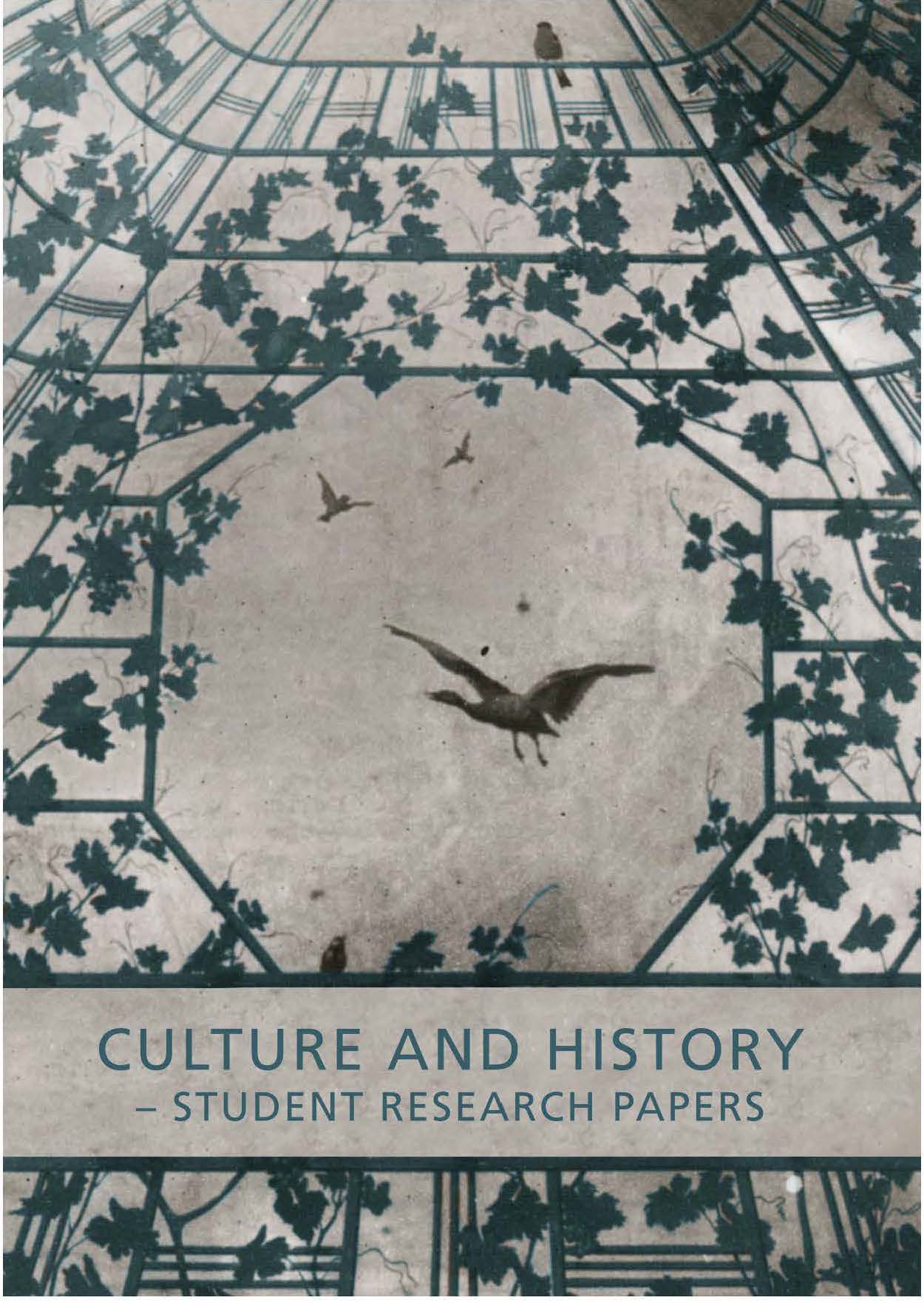Strategi for Fremtiden? Grønland mellem udvikling og uafhængighed
En analyse af OECD-rapporten “Strategy for the Future”, økonomisk udviklingsdiskurs og Grønlands kamp for økonomisk uafhængighed af Danmark
DOI:
https://doi.org/10.7146/chku.v4i5.122512Nøgleord:
Grønland, Post-development Theory, Økonomisk Udvikling, OECD, UafhængighedResumé
Denne artikel undersøger OECD-rapporten ”Strategy for the Future” fra 1999 på baggrund af kritiske læsninger af økonomiske udviklingsdiskurser. Artiklen argumenterer for at Grønland bruger udviklingsdiskursen til at positionere sig mere selvstændigt internationalt, i et forsøg på at distancere sig fra sin tidligere kolonimagt, Danmark. Hermed anvendes udviklingsdiskursen – som ellers fremstilles monolitisk og hegemonisk i den kritiske udviklingslitteratur – som en platform, hvorfra forskellige handlingsmuligheder opstår. Artiklen demonstrerer således endnu en af de mangfoldige måder, hvorpå postkolonial agens manifesteres på, samtidig med at den bidrager til forskningslitteraturen om Grønland gennem en historisering af OECD-rapporten og ved at vise endnu en front for Grønlands internationale enagement.
Referencer
Brimnes, N. (2004): Fra enerådende diskurs til flertydig dialog: E. W. Said’s Orientalism og moderne kulturmødeteori. KONTUR, 8, 26-29.
Chakrabarty, D. (2007/2000): Provincializing Europe: Postcolonial Thought and Historical Difference – New Edition. Princeton: Princeton University Press.
Chatterjee, P. (1993): The Nation and Its Fragments: Colonial and Postcolonial Histories. New Jersey: Princeton University Press.
Chibber, V. (2013): Postcolonial Theory and the Specter of Capital. London: VERSO
Cooper, F. (2005): Postcolonial Studies and the Study of History. Loomba, A. (Red.) Postcolonial Studies and Beyond. Durham/London: Duke University Press, 401-422
Escobar, A. (1995). Encountering Development: The Making and Unmaking of the Third World. Princeton, Princeton: Princeton University Press. (3-290).
Ferguson, J. (1995/1990): The Anti-Politics Machine: ”Development,” Depoliticization, and Bureaucratic Power in Lesotho. Minneapolis: University of Minnesota Press.
Foucault, M. (2007): Security, Territory, Population, Lectures at the Collège de France 1977-78. Houndmills/Basingstoke/Hampshire: Palgrave Macmillan
Gad, U. P. (2014): Greenland: A post-Danish Sovereign Nation State in the Making. Cooperation and Conflict, 49 (1), (98-118).
Go, J. (2016): Postcolonial Though and Social Theory. Oxford: Oxford University Press.
Gulløv, H. C. (2017): Danmark og Kolonierne: Grønland – Den Arktiske Koloni. København: Gads Forlag.
Kiely, R. (1999): The Last Refuge of the Noble Savage? A Critical Assessment of Post-Development Theory. The European Journal of Development Research, 11 (1), 30-55.
Lund, L. (2011): Grønland – makroøkonomiske temaer. København: Jurist- og Økonomforbundets Forlag
Motzfeldt, J. (2000): Den politisk-økonomiske udvikling i Grønland: Vejen mod større økonomisk uafhængighed. Politica, 32 (1). 5-12.
Nielsen, J. K. (2000): Kriterierne for Grønlands økonomiske bæredygtighed – og deres strategiske implikationer. Politica, 32 (1). 22-32.
OECD (1999): Greenland’s Economy: Building a Strategy for the Future. Paris: OECD Document.
Parfitt, T. (2011): Post-Development and its Discontents. Journal of Critical Realism, 10 (4), 442-464
Prakash, G. (1990): Writing Post-Orientalist Histories of the Third World: Perspective from Indian Historiography. Comparative Studies in Society and History, 32 (2), s. 383-408.
Peet, R. & Hartwick, E. (2015): Theories of Development: Contentions, Arguments, Alternatives. New York: Guilford Press.
Rahnema, M. with Bawtree, V. (Red.) (1997): The Postdevelopment Reader. Cape Town: David Philip Publishers.
Rud, S. (2017): Colonialism in Greenland: Tradition, Governance and Legacy. Cham: Palgrave Macmillan, Cambridge Imperial and Post-Colonial Studies Series.
Sachs, W. (Red.) (2010/1992): The Development Dictionary: A Guide to Knowledge as Power. London: Zed Books Ltd.
Schmelzer, M. (2016): The Hegemony of Growth: The OECD and the Making of the Economic Growth Paradigm. Cambridge: Cambridge University Press.
Winther, G. (2000): Nyliberalisme og vidensøkonomi i et grønlandsk perspektiv. Politica, 32 (1). (13-21). (8 ns)
Young, R. (2001): Postcolonialism: An Historical Introduction. Oxford: Blackwell Publishing.
Zein-Elabdin, E. O. & Charusheela, S. (Red.) (2004): Postcolonialism Meets Economics. London: Routledge.
Hjemmesider:
http://magasineteuropa.dk/gronland-i-tobrud-kolonien-er-pa-vej-mod-selvstaendighed/ (sidst besøgt d. 17/02/2020)
https://naalakkersuisut.gl/da/Naalakkersuisut/Greenland-Representation-to-the-EU/Overseas-Countries-and-Territories (sidst besøgt d. 17/02/2020)
https://arcticyearbook.com/images/yearbook/2018/China-and-the-Arctic/AY2018-Special-Section-Complete.pdf (sidst besøgt d. 17/02/2020)
Udenrigspolitisk Redegørelse, d. 26 oktober 1999: https://ina.gl/glsamlinger/samlinger/EM-1999/Dagsordenens%20punkt%2007-1.htm (sidst besøgt d. 17/02/2020)
https://blogs.lse.ac.uk/usappblog/2019/08/27/donald-trumps-designs-on-greenland-are-a-further-reminder-of-the-decline-of-the-us-led-liberal-world-order/ (sidst besøgt d. 17/02/2020)
https://www.dr.dk/nyheder/politik/loekke-vil-bruge-700-millioner-paa-lufthavne-i-groenland-en-historisk-dag (sidst besøgt d. 17/02/2020)
Downloads
Publiceret
Citation/Eksport
Nummer
Sektion
Licens
Forfattere af artikler i tidsskriftet har indtil 2023 copyright over deres artikler, men der er ikke knyttet en cc-licens til disse.


